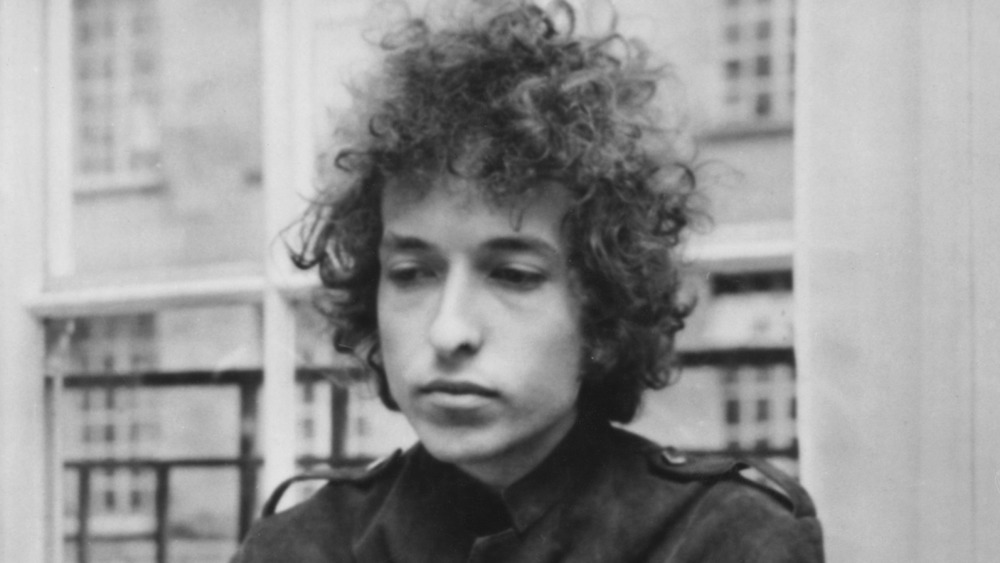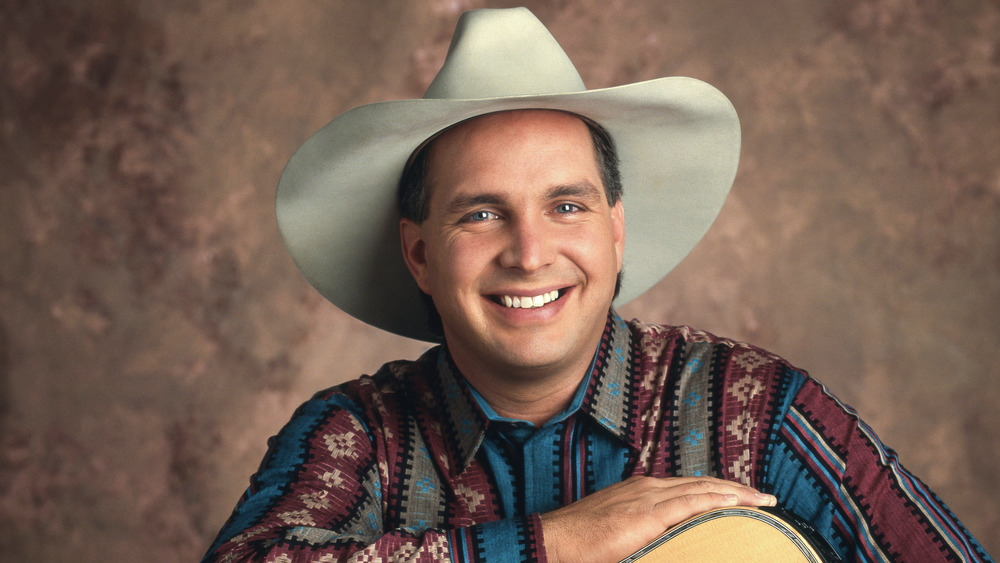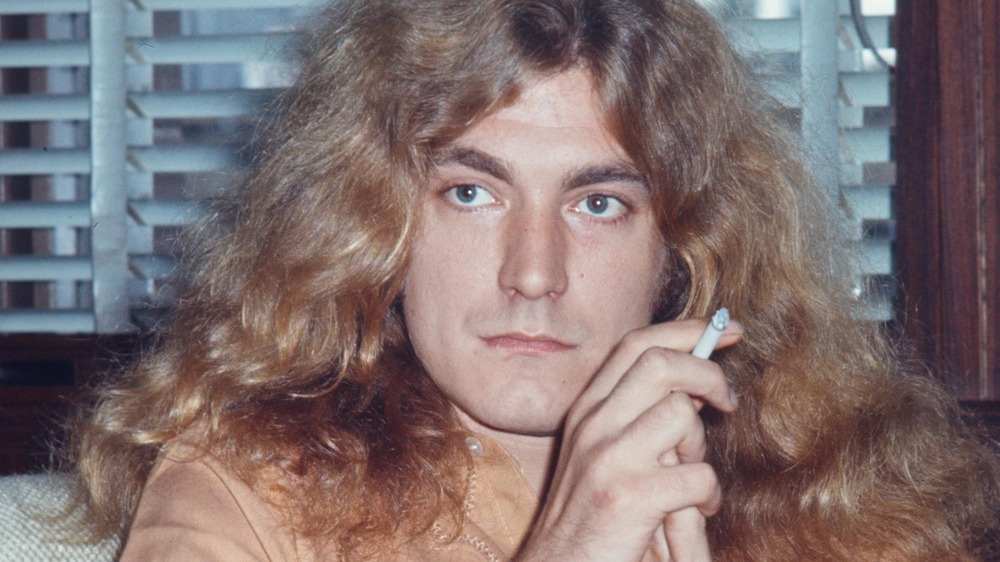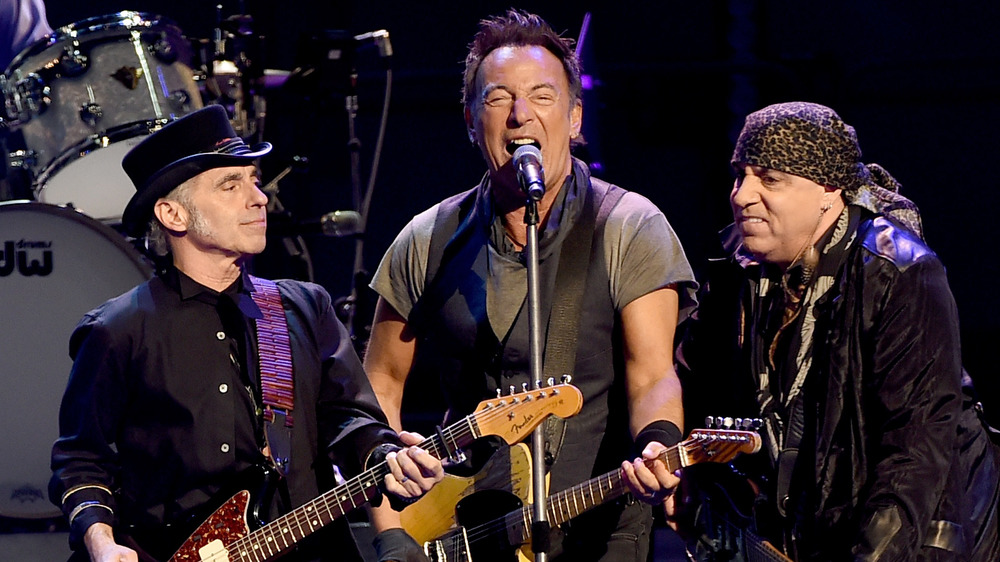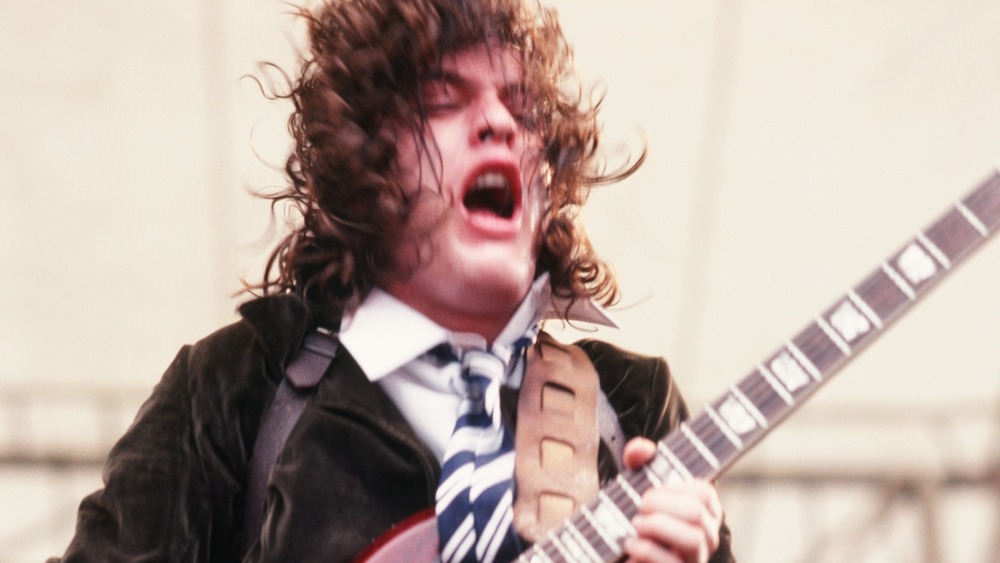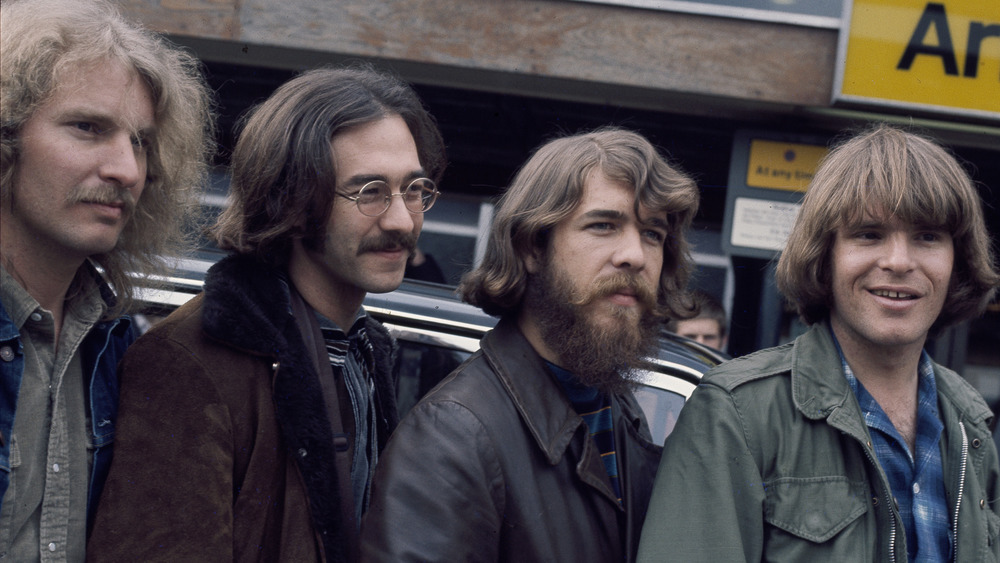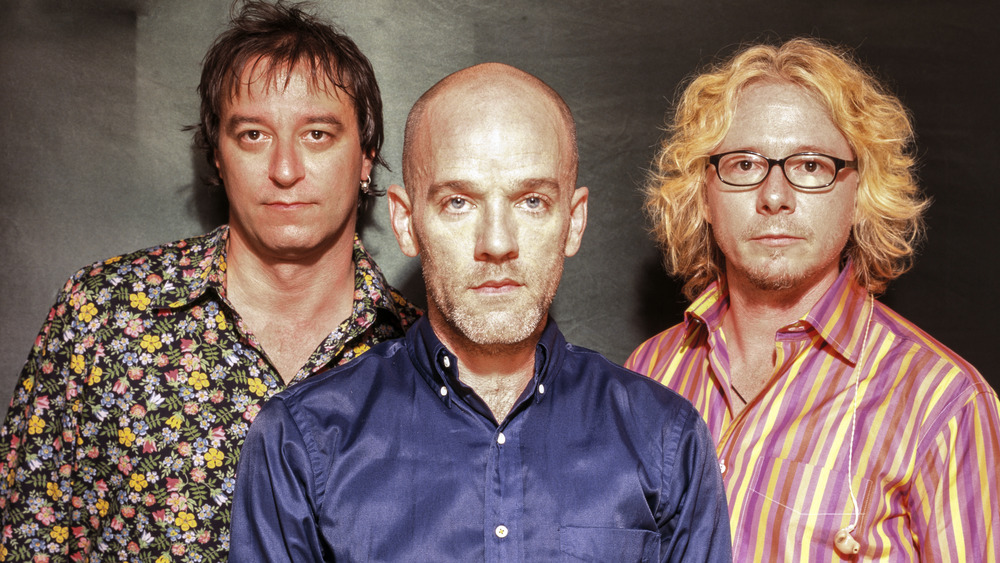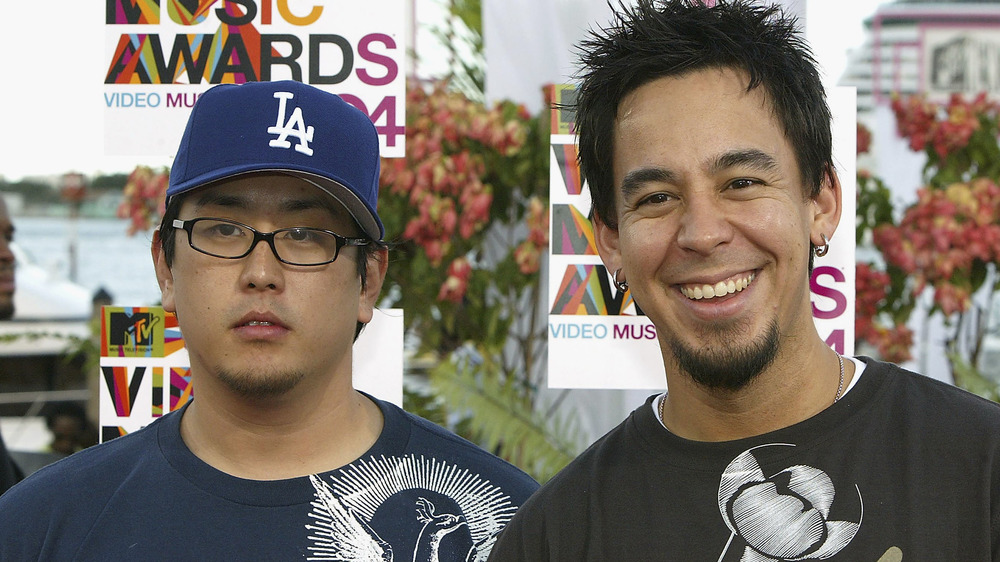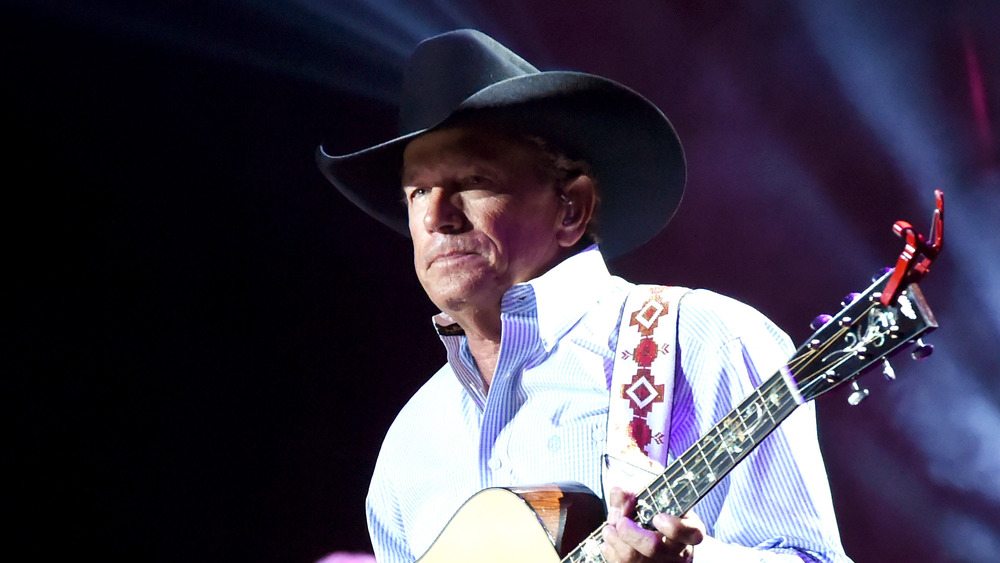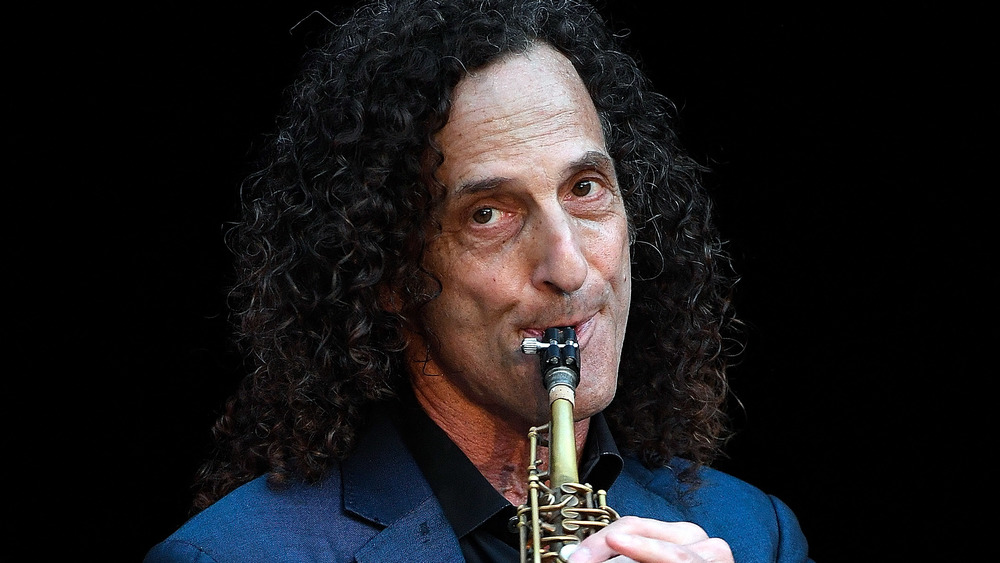Bands That Sold Millions Of Records But Never Had A No. 1 Hit
The act of landing a #1 hit single is shorthand for musical success but also a literal and remarkable achievement. An act can claim, for at least one week out of a long career, to have had the most popular song in the land. With the exception of one-hit wonders and album-oriented singers and bands, a hit single tends to generate record sales, and big record sales tend to lead to a chart-topper. Among the Recording Industry Association of America's 10 top-selling acts of all time in terms of albums, nearly all had at least one #1 single. That's an elite list that includes the Beatles, Eagles, Michael Jackson, Billy Joel, Elton John, and Pink Floyd.
But there are plenty of other musicians among the most famous and important acts of all time who have never experienced the joy of scoring a #1 hit on the Billboard Hot 100, the United States' general, all-genre chart of record. Sure, they sold tens of millions of LPs and compact discs, but they couldn't quite reach the top of the pops. Here are the most popular artists to never reach #1.
It doesn't rock that Metallica hasn't gone to #1
From the time it made its loud and fast presence known with the release of Kill 'Em All in 1983, Metallica became the world's premier heavy metal band. Over the next two decades, the California foursome won millions of devoted fans with their dark, noisy, and extremely complicated sound. Metallica made black T-shirt-wearing headbangers out of people all over the world with pitch-black anthems about death, darkness, and despair, including "One," "Enter Sandman," "Master of Puppets," and "The Unforgiven." About 63 million Metallica albums changed hands in the United States alone, according to the RIAA, none more so than its self-titled 1991 record, nicknamed "The Black Album," which has been certified 16-times platinum.
Metallica has topped Billboard's hard rock radio-measuring Mainstream Rock Airplay chart 10 times, including with "Until it Sleeps." That song was a departure for Metallica. The lead-off single from Load, the band's first studio album in five years, it was softer and more alternative rock than hard rock or heavy metal. Still, that aberration was apparently the most generally accessible song Metallica would ever make, as it's their only song to ever make the Top 10 of the Billboard Hot 100.
Bob Dylan never got tangled up in a chart-topper
There are few artists, past or present, spoken of with the respect and plaudits reserved for Robert Zimmerman, a.k.a. Bob Dylan. The reluctant "voice of his generation" (according to NPR), he emerged from the early 1960s folk scene to become a singer-songwriter (and guitarist and harmonica player) who idiosyncratically warbled and mumbled his way through poetic masterpieces that spoke deeply to the Baby Boomer generation and beyond. He's infallible to music critics — multiple Dylan albums, including Blonde on Blonde and Highway 61 Revisited, rank high among Rolling Stone's best of all time. Dylan's lyrics are held in such high regard that in 2016, he won the Nobel Prize for Literature.
Dylan has sold 36 million albums in the U.S. (per the RIAA), but he's had very few hit singles. Dylan songs reached the Billboard Top 10 just four times, with "Like a Rolling Stone" and "Rainy Day Women #12 & 35" both peaking at #2 in the mid-'60s. The only time Bob Dylan hit #1 on any chart came in 2020, when his 17-minute musical meditation on the assassination of President John F. Kenney scaled the highly specific Rock Digital Song Sales chart.
Garth Brooks had friends in low places but no #1 singles
The dominant recording artist of the 1990s wasn't a rock or pop star: It was country's Garth Brooks. By the end of the decade, Brooks sold an astounding 95 million albums (according to the Boston Globe, via the Kitsap Sun), and he took 34 singles in a row to the Top 30 of Billboard's Hot Country Songs chart. Among those, 19 went to #1, including "Friends in Low Places," "The Thunder Rolls," and "American Honky-Tonk Bar Association."
How could Garth Brooks top all that? He pretended to be someone else. In 1999, he released In the Life of Chris Gaines, an elaborate concept album and faux greatest hits compilation purporting to be the work of a soft rock superstar named Chris Gaines. The songs were more adult contemporary than country, and Brooks appeared on the LP cover (and on Saturday Night Live as a musical guest) with a hipster haircut and goatee. The whole Chris Gaines project was widely perceived as a failure. In the Life of Chris Gaines is the worst-selling record of Brooks' career to that point (per the RIAA), and a planned Gaines movie was scrapped. But if the notion of Chris Gaines was to allow Brooks to cross over from country, by that criteria, it succeeded. "Lost in You," credited to "Garth Brooks as Chris Gaines" went to #5 on the Billboard Hot 100 – the only time Brooks would ever reach even the Top 40 of the pop chart.
Led Zeppelin couldn't climb the stairway to pop glory
As far as bands go, only the Beatles and Eagles sold more albums in the United States than Led Zeppelin did — but 111.5 million (per the Recording Industry Association of America) isn't too shabby. Seven studio albums' worth of Robert Plant's wailing and Jimmy Page's thunderous electric blues riffs topped Billboard's album chart, and five of them rank among the 100 best-selling albums of all time in the United States, according to the RIAA. With 23 million copies, the top seller of those LPs is the band's fourth album, an untitled 1971 collection (referred to as Led Zeppelin IV) that includes some of the group's best-known tracks, including "Rock and Roll," "Black Dog," "When the Levee Breaks," and "Stairway to Heaven."
Despite giving the world some of the best-known perpetual favorites in rock history, Led Zeppelin enjoyed middling success on the singles chart. The band made it to the Top 20 of the Billboard Hot 100 just four times and into the Top 5 once, with "Whole Lotta Love" peaking at #4 in January 1970. That was an early success, and according to Showbiz Cheat Sheet, Led Zeppelin focused its marketing on live shows and album sales. It didn't often release commercial singles, forcing fans to buy the whole LP if they wanted to hear a song they liked.
Bruce Springsteen and the E Street Band never topped the charts in the U.S.A.
An icon of American rock with his songs about working people who just want to escape the rat race, Bruce Springsteen is a legend, with or without his loyal ensemble he calls The E Street Band. In a career full of huge albums (Born to Run, The River) and huge hit singles ("Hungry Heart," "Born to Run,") nothing was bigger than his 1984 studio LP, Born in the U.S.A. Springsteen released seven singles from that record, and all of them reached the Top 10 of Billboard's pop chart, tying a record with Michael Jackson's Thriller.
The very first of the bunch, "Dancing in the Dark," charted the highest, peaking at #2. That would also mark the farthest Springsteen would ever get on the Hot 100. A couple of singles from his Born in the U.S.A. follow-up Tunnel of Love made the Top 10, as did his Oscar-winning "Streets of Philadelphia" from the Philadelphia soundtrack, but the Boss would never again approach such lofty chart positions.
It's shocking that AC/DC never went to #1
Throughout rock history, many bands have replaced their lead singer – Van Halen and Black Sabbath, for example. Popular '70s Australian metal band AC/DC did, too, due to tragic circumstances. According to Ultimate Classic Rock, the group's 33-year-old singer, Bon Scott, died in February 1980. The rest of AC/DC opted to continue and, with newly hired singer Brian Johnson in the lineup, released Back in Black just six months later. Remarkably, AC/DC was even more successful with its second frontman. Back in Black has sold a whopping 25 million copies — only three LPs have sold more in the U.S., per the RIAA. And then the band just kept selling records. Well into the 2000s, AC/DC routinely went multi-platinum in the U.S. With RIAA-certified sales of 75 million albums, AC/DC are the most successful heavy metal band and Australian act in American music history.
Despite their days of generating perpetual staples for classic rock radio, AC/DC only got within the Top 30 of the Billboard Hot 100 once, in 1991, with the #23 hit "Moneytalks." Better-known songs "You Shook Me All Night Long" and "Back in Black" barely scraped into the Top 40.
Journey never made the trip all the way to the top
Journey began in the late '70s as an offshoot of the enormously successful Latin rock band Santana — guitarist Neal Schon wanted to pursue a jazzy, prog-rock sound. The new group didn't find much commercial success until they became a more straightforward band, hiring vocalist Steve Perry and churning out anthemic arena rockers like "Wheel in the Sky," "Any Way You Want It," "Who's Crying Now," "Separate Ways," and the indefatigable soundtrack and karaoke standard "Don't Stop Believin'."
Journey resonated with rock fans, but that didn't work out to phenomenal success on the pop chart — the group made it to the Billboard Top 10 a mere six times. Music buyers love Journey singles, too, but more so in retrospect. The group's top album is its 15 million-selling Greatest Hits collection. Their studio albums did just fine, though — 1981's Escape sold nine million copies, 1983's Frontiers moved six million, and 1979's Evolution wound up in three million homes. Altogether, Journey has American sales of 48 million, according to the Recording Industry Association of America. And yet, they never went to #1. Their best-performing single was the power ballad "Open Arms," a #2 hit in 1982.
Creedence Clearwater Revival was seemingly cursed by a bad moon on the rise
The bands associated with the 1960s that most music historians and casual fans discuss today are classic rock and oldies radio station staples like the Beatles, the Rolling Stones, and the Who. But for a period in the late 1960s and early 1970s, few acts could rival the success or popularity of Creedence Clearwater Revival. The Northern California-based band, led by vocalist and main songwriter John Fogerty, was a hit-making machine. Americans couldn't get enough of that Creedence style of jaunty, Louisiana culture-inflected "swamp rock." According to Forbes, the Rock and Roll Hall of Fame inductees have sold 26 million albums in the United States.
But each time peak-era Creedence released another single, it seemed like somebody else would release one that was just a little bit more popular. Over an 18-month span in 1969 and 1970, Creedence Clearwater Revival charted seven singles in the Top 5 of Billboard's Hot 100 chart. And yet, not a one of them reached #1. "Proud Mary," "Bad Moon Rising," "Green River," "Travelin' Band," and "Lookin' Out My Back Door" came ever so close, all peaking at #2. Creedence Clearwater Revival still holds a dubious Billboard record, according to Slate: No act has ever scored more #2 hits without also topping the chart.
R.E.M. gave it the old college try
Before it was called "indie rock" or "alternative rock," the moody, less aggressive brand of rock favored by thoughtful and sensitive young people was called "college rock," because college radio stations played that kind of stuff all the time in the 1980s. At the forefront of the movement: R.E.M., a four-piece out of Athens, Georgia, led by poetic lead singer Michael Stipe. The band never compromised its integrity or sound and still sold 85 million albums over its three-decade life span, according to Free Times.
R.E.M. was a cult favorite for most the '80s, until the mainstream caught up with its often stark and somber but always melodic and jangly indie rock. In 1987, R.E.M. hit the Top 10 of the Billboard singles chart for the first time with the snide and vicious anti-love song "The One I Love," a #9 hit, and then got a bit higher with the undeniably catchy "Stand" in 1989. That laid the groundwork for R.E.M. to break through in the early '90s. In 1991, the band landed its highest showing to date — or since — when the first single from Out of Time, the haunting "Losing My Religion," peaked at #4. In 1996, R.E.M. signed a five-album deal with Warner Bros. worth $80 million, which, according to the Los Angeles Times, was the biggest recording contract of all time. The group would never hit the Top 40 again.
In the end, Linkin Park came one step from the top
The dominant, culturally fresh sound of rock music in the very late '90s and early 2000s was a postmodern pastiche, a combination of older styles jammed up against each other to make something new. Acts like Papa Roach and Limp Bizkit combined elements of hard rock and hip-hop to create a genre called "nu metal," but the most popular of these millennium-era bands, in terms of record sales, was Linkin Park. Songs about pain, mental illness, and isolation like "One Step Closer," "In the End," and "Somewhere I Belong" uncannily combined crunching process guitars with turntable scratches, digital effects, rapping, and the almost angelic vocals of the late Chester Bennington to make something truly unique.
And how the music-consuming public did respond. According to The Independent, Linkin Park moved 70 million copies of albums like Hybrid Theory and Minutes to Midnight, and the band topped Billboard's Alternative Songs chart 10 times. But on the Billboard Hot 100, Linkin Park just couldn't go all the way. "New Divide," "What I've Done," and "In the End" made the Top 10, with the latter peaking at #2.
George Strait was a country king but a pop also-ran
As trends in country music come and go, George Strait has rarely strayed from his slightly old-fashioned, "neo-traditionalist" approach, never not wearing a white or black cowboy hat and delivering restrained, gentle songs about love, romance, faith, patriotism, and family. And it has paid off handsomely. According to the RIAA, George Strait's total album sales approach 70 million copies. And he's almost guaranteed to top or nearly top the Hot Country Songs chart, too, a remarkable rate of success he's kept up for decades.
Since taking "Unwound" to #6 in 1981, Strait has hit the Top 10 more than 80 times — and 44 of those songs went all the way to #1. Many are undeniable country classics, like "All My Ex's Lives in Texas," "Love Without End, Amen," and "Write This Down," which is one of only three songs Strait has ever placed in the Top 30 of the Billboard pop chart. Country music operates as its own industry, apart from the rest of the music business, and that's exemplified by the chart history of George Strait.
Kenny G is a saxman without a #1 song
While he's not typically what most people (or genre purists) think of when they think of "jazz," the much-maligned Kenny G is, for better or for worse, the best-selling jazz artist of all time in the United States. Per the Recording Industry Association of America, the man born Kenneth Bruce Gorelick has sold 48 million albums of his soothing, low-key, inoffensive background music to people looking to kill the silence in elevators, grocery stories, dentist offices, bedrooms, and minivans.
Kenny G's instrument of choice is the soprano saxophone, and the overwhelming majority of his catalog lacks vocal performances. Word-free songs haven't done well on the pop chart or on Top 40 radio since the 1980s, when Kenny G released his first albums, but he's managed to crack the upper reaches of the Billboard Hot 100 on occasion. His ultra-chill 1987 single "Songbird" peaked at #4, and his collaboration with Babyface, "Every Time I Close My Eyes," hit #6 in 1996. The saxophonist has topped the Adult Contemporary and Jazz lists, however, on more than one occasion each. Nevertheless, the #1 single in America is an achievement that has, as of yet, eluded Kenny G.


